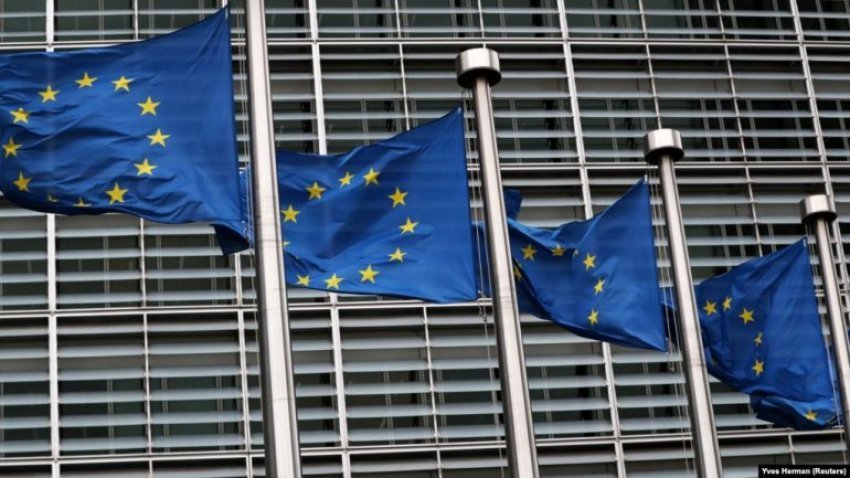As the new European Commission takes office, it faces a daunting array of challenges. Can it tackle these effectively without the strong Franco-German tandem?
From a vulnerable Ukraine and a belligerent Russia to the uncertainty of Donald Trump returning to the White House, the European Union will grapple with both external pressures and internal struggles in 2025. Economic slowdown, mounting debt, and limited governance capabilities in major member states like Germany and France further complicate the outlook.
Here’s a look according to DW at the top five tasks for the reshaped EU leadership under President of the Council Antonio Costa and High Representative for Foreign Affairs Kaja Kallas, as they begin their terms alongside a reorganized European Commission led by Ursula von der Leyen.
1. Supporting Ukraine
Providing financial and military aid to Ukraine remains a priority. The EU plans to channel €1.5 billion monthly into Ukraine’s state budget throughout 2025, alongside a €50 billion loan from the G7, financed through profits from frozen Russian assets.
However, this aid plan hinges on political stability in the US. Should Donald Trump resume the presidency, his promises to reduce or eliminate US support for Ukraine could leave the EU scrambling to fill the gap. EU diplomats admit they are unprepared for such a scenario, with one commenting, “We’re not quite ready for Trump.”
2. Strengthening Defense
In addition to aiding Ukraine, the EU aims to bolster its own defense capabilities against Russia. A newly created post for an EU Commissioner for Defense and Space, held by Andris Kubilius, signals the bloc’s intent to better coordinate defense procurement among member states.
Yet, funding remains an obstacle. Defense budgets in many EU countries are insufficient to meet growing demands. Germany, for instance, faces a €230 billion defense budget shortfall, while Italy and Spain trail by €120 billion and €80 billion, respectively.
A potential withdrawal of US defense support under Trump would further strain EU resources, with no clear solution in sight for financing these military upgrades.
3. Managing Debt
Beyond military expenditures, the EU faces mounting financial pressures, including the green transition, economic support, and reconstruction in Gaza, Lebanon, and Syria. Mario Draghi, former ECB president, estimates that €800 billion in investment is needed, suggesting joint EU borrowing to attract private investors.
However, member states like France and Italy are already grappling with excessive deficits, and Spain may soon join their ranks. Meanwhile, Germany’s fiscal policy is stalled due to its ongoing political transition, delaying critical budget decisions until late 2025.
4. Preventing Trade Wars
Global trade dynamics are another critical concern. A brewing trade war with China over electric vehicles looms, while potential punitive tariffs from Trump’s administration threaten relations with key trading partners, including the EU.
Valdis Dombrovskis, EU Commissioner for Economic Affairs, is working to convey the risks of such tariffs to the US. “A trade war benefits no one. Tariffs would erode 7% of global GDP and take us back to the isolationism of the 1930s,” he warns, referencing the Great Depression era.
A recently signed trade agreement with South America’s Mercosur bloc offers a glimmer of hope, but it requires ratification from EU member states—a process likely to drag into 2025.
5. Preserving Unity
Maintaining cohesion within the EU itself remains one of the greatest challenges. As expert Janis Emmanouilidis from the European Policy Centre notes, the EU’s ability to forge compromises has eroded.
France and Germany, traditionally the Union’s driving forces, are hindered by internal political struggles. Minority governments in Spain and Italy, technical caretaker administrations in Belgium and Austria, and a confusing political landscape in Romania further exacerbate the situation.
Meanwhile, EU-skeptical governments in Hungary, the Netherlands, and Slovakia add to the bloc’s fragmentation. Hungarian Prime Minister Viktor Orbán, touting his closer ties to Russia, looks forward to Trump’s presidency as a means to further his agenda.
A Tumultuous Year Ahead
As the EU braces for 2025, the year promises to be as turbulent as it is pivotal. From managing external threats to addressing internal discord, the challenges are monumental. Yet, the unfolding developments could reshape the bloc’s future in profound ways.







